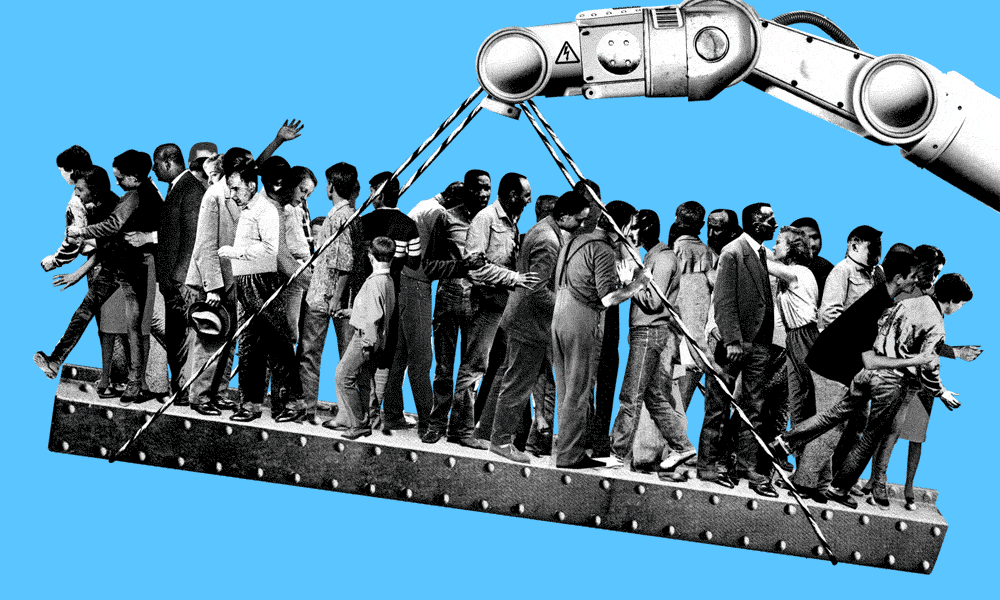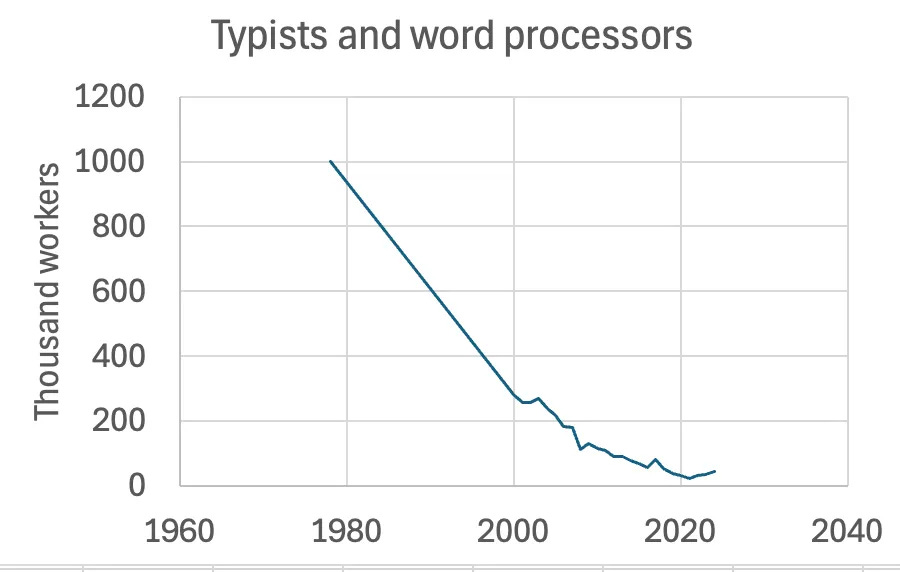
AI: Job losses due to AI, Not So Fast. RTZ #896
I’ve been clear and vocal on the ongoing fears over AI leading to net job losses, for some time now. And continue to believe we will look back on this AI Tech Wave in a few years, and wonder why we thought AI meant fewer people needed overall.
Fears over AI job losses have been discussed here for a long time. Most recently the debate between Anthropic founder/CEO Dario Amodei and Nvidia founder/CEO Jensen Huang.
New data is now suggesting that these fears may be a tad overdone.
Axios here in its latest “People replacements aren’t sticking”:
“Layoffs may be rising, but people are also getting rehired more frequently as part of a “layoff boomerang” trend, an analysis by workplace platform Visier finds.”
“Why it matters: AI may not be the headcount reducer it’s cracked up to be.”
“What they’re saying: “The idea that now AI is coming and replacing absolutely every job is still really not proven,” said Andrea Derler, principal at Visier, adding that AI can be a “very convenient explanation for layoffs.”
“Rehiring rates are increasing even amid the rollout of AI-powered agents and digital workers.”
The details are useful to dig into:
“By the numbers: Visier examined an anonymized subset of its data that covers 2.4 million employees at 142 companies around the world. In an analysis shared exclusively with Axios, it found that about 5.3% of laid-off employees end up being rehired by their former employer.”
“While that rate has been relatively stable since 2018, it has ticked up recently, Derler said.”
“It’s hard to tell what’s driving the recent uptick, she noted.”
“Still, rehiring indicates a “larger planning problem” for executives, she added.”
The media of course finds every tech lay-off too attractive to link to ‘AI’ as the root cause.
Even Amazon which got a lot of media coverage linking its recent layoffs with AI had to react and assert that the two were not linked in their case. Note this from HR Grapevine, “Andy Jassy | Amazon CEO says layoffs are about culture, not AI or finances”:
“Amazon’s latest round of layoffs – affecting 14,000 corporate workers – is not about saving money or replacing people with technology, according to CEO Andy Jassy.”
“Speaking on the company’s quarterly earnings call, Jassy said the decision stemmed from “culture,” not cost-cutting. “The announcement that we made a few days ago was not really financially driven, and it’s not even really AI-driven, not right now at least,” he told analysts. “It’s culture.”
There are other emerging studies as well, that tally the costs of layoffs:
“Zoom out: This mirrors takeaways from a recent MIT study that indicated that 95% of organizations are finding no return on their investment in AI pilot projects.”
“When it comes to AI investment, “maybe all this money is not actually being spent all that wisely,” Steve Sosnick, chief strategist at Interactive Brokers, told Axios.”
“Zoom in: “Layoffs are never free,” Derler said, and companies should consider the costs.”
“For every $1 companies save from layoffs, they spend $1.27 when accounting for often overlooked costs like unemployment insurance, severance packages and more, according to data from Orgvue, a software platform.”
“Yes, but: Derler conceded that these are “really complex” problems for executives to figure out quickly.”
History beyond tech going back at least a couple of centuries lend economic data and validity to the notion that innovations tend to create more new net jobs. Even though specific jobs in narrow categories do melt away.
From people who made their living via horses to people who made their living typing (over a million in the seventies according to BLS-bureau of labor statistics data).
As Nobel prize winning Economist Paul Krugman no less outlines in his excellent ‘must read’ piece “Technology and Jobs”:
“Technology can and does destroy jobs
“In 1978, according to the Bureau of Labor Statistics, roughly a million Americans — about 1 percent of the overall work force — were employed as typists, and the BLS expected their number to grow over time.”
“Where did the typing jobs go? Personal computers — first desktops, then laptops — took them away. Almost everyone began writing memos, reports, etc. directly on a keyboard, obviating the need for skilled typists taking dictation or reading handwritten scrawl. I never properly learned touch-typing, but my enhanced hunt-and-peck technique is good enough when you compose your first draft on your computer.”
“Why did technological progress eliminate a million typing jobs? Because there was a limited demand for typed material, and technology allowed us to satisfy that demand with fewer workers.”
“One can tell similar stories — jobs disappear because technology allows us to satisfy demand with fewer workers — for many industries.”
Again, I recommend a thorough read of his excellent piece on why fears over net job losses due to tech are overdone. And there are economic studies going back far longer.
Economic analyses like ‘Jevons Paradox’ illustrate that tech in particular leads to opening up new economic opportunities, that then lead to new jobs. Expands the pie in big unexpected ways most of the time.
Even when AI data firms like Mercor are hiring former McKinsey consultants and Goldman Sachs bankers to train AI to do entry level consulting and investment banking tasks. For unspecified LLM AI companies (cough, OpenAI, etc.)
It doesn’t mean that AI will replace consultants and bankers on a net basis. Far more likely to make both those professions far more capable and busy down the road. Needing a lot more smart, young people. More tuned to AI work than ever.
AI is but the next step in the evolution of work. Augmenting humans, not replacing them on a net basis. Growing the pie in almost every field of human endeavor.
Even though paradoxically, some AI will replace tasks done currently by humans. Two opposite ideas can be correct at the same time.
And lead to net good outcomes for society.
Even in this AI Tech Wave. Stay tuned.
(NOTE: The discussions here are for information purposes only, and not meant as investment advice at any time. Thanks for joining us here)












